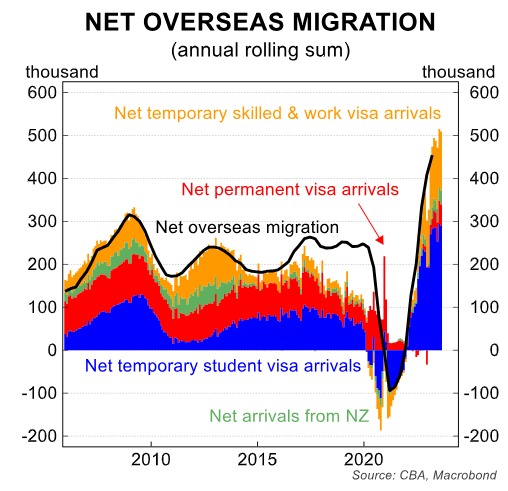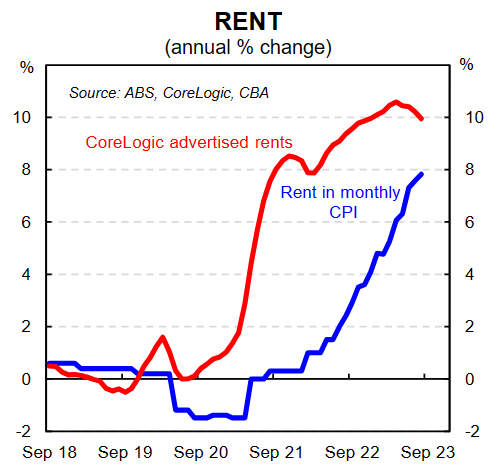CBA’s head of Australian economics, Gareth Aird, last week warned that the Albanese Government’s record immigration program, which is expected to have seen around half a million net migrants land in Australia in 2022-23, is contributing to rising inflation and may push the Reserve Bank of Australia (RBA) to keep interest rates higher for longer.

Aird said that while the massive population increase will eventually limit wage growth, it had raised overall economic demand, which the RBA was attempting to slow through monetary policy tightening:
“The surge in population growth has boosted aggregate demand in the economy”.
“Higher than expected immigration is alleviating wage pressures in some industries that had been experiencing significant labour shortages”.
“In turn that should dampen inflation outcomes over the medium term as growth in input costs slow (labour is a key input in the cost of production, particularly in the services sector)”.
“But in the short run we believe the rapid increase in population contributes to a firmer inflationary pulse. The RBA shares this view”.
“The RBA first mentioned the link between population growth and inflation in the April Board Minutes”.
“Specifically it was stated that, “members noted that the net effect of a sudden surge in population growth could be somewhat inflationary for a period.”
“Since then population growth has continued to be stronger than both the Government and the RBA expected, particularly since the May 2023 Budget”.
This is the classic “burnout economy” coined by independent economist Tarric Brooker.
That is, the RBA’s efforts to slow the economy and inflation via its aggressive monetary tightening is being thwarted by the Albanese Government’s extreme immigration, which has lifted demand beyond supply across several areas.
The most obvious area where this immigration-led inflation is taking place is in the housing market where surging demand has pushed up both rents and construction costs:

Housing accounts for around one-fifth of Australia’s CPI inflation basket, so the Albanese Government’s record immigration is directly pushing up inflation and will require the RBA to keep rates higher for longer (other things equal).
This is obviously bad news for the roughly two-thirds of Australians that rent or have a mortgage, as well as workers more generally who will receive lower wage growth.

